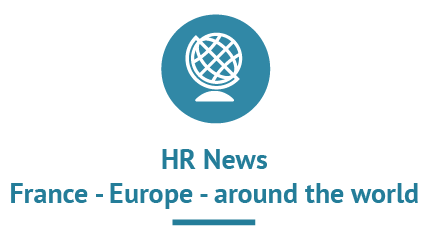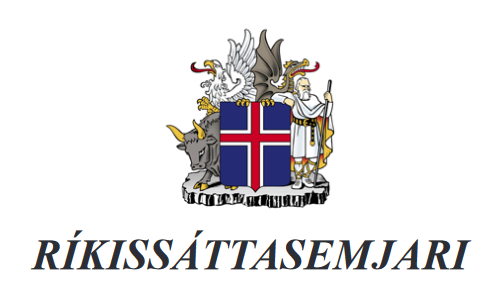|
If you are having trouble viewing this email, open it with your internet browser,
download the PDF version
or contact us.
|
 |
| #25 - May 2020 |
| PDF version - Manage your subscription - Search - Archives |

|
|
vision RH is a newsletter published by the French Directorate General for Administration and the Civil Service (DGAFP). It draws on information sources and reports issued by public administrations, the private sector, international organisations and the press, in several different languages. It aims to provide a broad view of current human resources and civil service initiatives.
|
|

|

|
| Management approaches to safeguard and better reconcile work-life balance | |||||
|
Rarely has work-life balance been so rigorously put to the test. In these unprecedented times, when many civil servants are having to work from home whilst managing childcare and their children’s lessons or caring for a relative, professional and personal lives have become considerably intertwined. A 2018 study conducted by the European Commission flagged up major disparities within the EU. A fifth of Europeans are not satisfied with the balance between their work and personal life. This is in spite of the fact that, in recent years, a number of countries have introduced initiatives to heighten the protection of their employees. Germany has a “Working and Family Life” policy. This certification, which has to be re-audited every three years, ensures that tangible measures are rolled out so that employees are able to benefit from all the conditions that foster a good work-life balance. There are eight areas of action: working time, work organisation, work location, information and communications, leadership-management, human resources development, financial benefits and services for families. All federal government departments (ministries, authorities and agencies) have applied for and been awarded certification. For its part, Portugal has unveiled the “3rd Line” programme, with one of its four arms being devoted to the government. It provides for the introduction of a mandatory training module for all managers to raise awareness of best practices, as well as polling of employees and regular appraisals to measure the achievement of targets. In Malta, the People and Standards Division has built up a network of “People Support and Wellbeing” counsellors who are expressly tasked with answering requests from civil servants and putting forward solutions for a better work-life balance. The Nordic countries, where wellbeing and balance are deeply ingrained (“hygge” in Denmark and “lagom” in Sweden), focus on respect for personal time and public services aim to be exemplary in this regard. Besides regulations covering parenting, flexible working hours have been mainstreamed and are used by almost 60% of employees. At all hierarchical levels, working long hours is not perceived as a feat but as a warning that the workload should be reviewed, or even as a sign of inefficiency. In Spain, in addition to “moscosos” – days off on personal grounds whose use is regulated and which specifically cover family needs – the government and the unions have recently executed an agreement which provides for applications for a one-off and limited “time credit” of up to 8% of annual working hours for childcare or caring for a relative. This credit will then be worked off once the employee resumes normal working hours. On the other side of the Atlantic, OPM, the US federal government’s human resources department, has introduced a Work-Life Toolkit for managers. It contains self-training media, guides for interviews with staff and a list of best practices. Each agency is rated based on its employees’ satisfaction rate which is polled by an annual nationwide survey. What about the right to disconnect during this period of mass teleworking? Although France was a trailblazer by regulating this practice in the private sector,(1) a field study conducted by the network of European Public Administration Employers (EUPAE) – and which provides a list of recommendations for improving work-life balance in the face of opportunities and risks coming from digitalisation – reveals that only Estonia partly restricts public sector employees’ access to professional emails outside working hours. In Austria, which already posts very good results, all employees can and must be involved in ensuring this balance. The new “smartWorkLife” app aims to foster the acquisition of habits by regularly completing exercises on the frontiers between work and leisure.
|
|||||
|
|||||
|
|
|||||

|
|||||

|

|

|
| Reform project for senior staff in the Japanese civil service | |||||
|
In addition to progressively raising the retirement age for civil servants from 60 to 65 between now and 2030, the government has introduced two measures concerning staff over the age of 60: removal from managerial positions together with a 30% reduction in salary. This system is already in place in the private sector and the aim is to boost the motivation of younger employees by increasing their chances to serve in these positions. |
|||||
|
|||||
|
|
|||||

|
|||||
| “Travailler pour la Suisse”, the Confederation’s employer branding | |||||
|
The Federal Personnel office has drafted a multilingual and widely-distributed brochure to set out all the advantages in working for the federal government, some of which are not necessarily obvious to everyone. This public relations initiative, which is grounded in values relating to meaningful work and the diversity of professions, is being actively disseminated at trade fairs and on social media. |
|||||
|
|||||
|
|
|||||

|
|||||
| “Work4Germany”, innovation serving the German federal government | |||||
|
The Chancellery has set up an entity tasked with coordinating and steering major innovation projects. It is staffed by experts from both the private and public sectors. Working in agile mode and as a government startup, these experts advise all the ministries on their choice of service providers and provide support for the rollout of their future digital solutions. « Talented innovators seek impact, but also flexible working structures that allow efficient project work »
|
|||||
|
|||||
|
|
|||||

|
|||||

|

|
| Opening of a new public sector job exchange in the Netherlands | |||||
| The mobiliteitsbank.nl platform now contains all the vacant internal positions in the public sector and meets users’ requirements. It is accessible on all media and has new functionalities such as advertising fixed-term assignments, posting feedback from colleagues, recruitment test simulation and profile-based career opportunities. | |||||
|
|||||
|
|
|||||

|
|||||
| Improved mobility for central government civil servants in Spain | |||||
|
New criteria have been approved to foster the geographic mobility of certain central government civil servants who have had few opportunities in this respect up to now. Besides seniority, the work-life balance of the future position, a merit-based appraisal and diplomas and qualifications will now be taken into account. A third of vacant positions will also be reserved for them. |
|||||
|
|||||
|
|
|||||

|
|||||
| Assessment of the health of the staff of three Département Fire and Rescue Services (SDIS) using artificial intelligence | |||||
|
A non-profit organisation comprised of firefighters and doctors is using artificial intelligence to help manage the health crisis. In three French départements (Allier, Seine-et-Marne and Yvelines), the E-SDIS app enables the health of administrative and rescue staff to be monitored on a daily basis by detecting then prioritising symptoms and aggravating factors. « The process implemented brings together rescue workers and their management by having access to the availability of resources »
|
|||||
|
|||||
|
|
|||||

|
|||||

|

|
| A “Managers and HR” discussion community in Norway | |||||
|
The Norwegian Agency for Public and Financial Management (DFØ) has set up a virtual community (Erfaringsrommet). It is available to HR departments and the managers of government departments for discussions and experience-sharing for more effective interaction. The main topics are recruitment management, wage policy, the new challenges facing management and support for restructuring. |
|||||
|
|||||
|
|
|||||

|
|||||
| Synergia, cooperation and leadership in Central and Eastern Europe | |||||
|
Under Poland’s impetus, a cooperation agreement with signatories from Bulgaria, Hungary and Latvia has led to an initial education and cooperation programme. Over a year, managerial staff in the public administrations of the four countries will be given training to bolster their leadership skills and establish new information exchange networks focusing on innovation and transformations. |
|||||
|
|||||
|
|
|||||

|
|||||
| Government of Canada Directive on Automated Decision-Making | |||||
|
Whilst data analysis is a prerequisite for strategic choices, powerful resources (using algorithm technology) can now provide real support for decision-makers. With a new Directive that has just taken effect, the federal government is looking to regulate this growing practice so as to ensure transparency, accountability, legality and procedural fairness. « Faced with rapidly evolving technology, the directive will continue to adapt in order to ensure that it is relevant »
|
|||||
|
|||||
|
|
|||||

|
|||||

|

|
| Groupe PSA presents its new principles of working methods | |||||
|
PSA is the first major French firm to announce the mass rollout of teleworking which is set to continue in all activities not directly related to production. Based on the agreement executed in autumn 2019, the car manufacturer explains that the lessons learned from the general implementation of teleworking are helping to accelerate the transformation of the company’s operating methods in favour of greater agility and efficiency for employees. |
|||||
|
|||||
|
|
|||||

|
|||||
| Memorandum of understanding on the conditions for Italian civil servants returning to work | |||||
|
The government and the unions have signed a memorandum of understanding setting the conditions for returning to work following the lifting of the lockdown. It covers ten points and is intended to promote and foster application of the measures required to contain propagation of the contagion, make workplaces and public access areas safe while ensuring the continuity of service and guaranteeing civil servants’ salaries. |
|||||
|
|||||
|
|
|||||

|
|||||
| Survey to gauge impact of pandemic on British civil servants | |||||
|
The Cabinet Office is currently conducting a survey. British civil servants are being asked to reply to a series of questions about how their work has changed as a result of the crisis and the support they are receiving from their managers. Anonymous demographic data should reveal if groups of staff are having a better or worse experience so that appropriate action can be taken. « This will give departments the opportunity to take positive action based on staff feedback »
|
|||||
|
|||||
|
|
|||||

|
|||||

|

|
| SAP is defending the position of women and addressing everyday sexism in the workplace | |||||
|
At the Tech for Good Summit in 2018, SAP, Europe’s leading software publisher, made strong commitments to bolster its diversity and inclusion strategy throughout the company. By adding its name to the group of #JamaisSansElles signatories, the Comex undertook to promote female talent by fostering women’s access to management positions through coaching initiatives and a recruitment process including at least one female recruiter, as well as increasing the number of women in the firm’s total headcount in a business sector which remains male-dominated. Managers are convinced that this “glass ceiling” can only be broken by doing everything possible to roll back insidious, hurtful and damaging attitudes and behaviour that are obstacles to equality and inclusion. To do so, the group has elected to become involved in the #StOpE initiative (1), which combats all forms of everyday sexism. It has started by identifying eight priority actions, the first of which is to apply zero tolerance. Over and above this intangible principle, concrete communication, training, prevention and awareness-raising measures are gradually being rolled out by HR and management, and for each case reported and proven, sanctions are taken against the perpetrators. The idea is to drive true change to help alter mindsets so that gender equality is a condition for success and fairness.
|
|||||
|
|||||
|
|
|||||

|
|||||

|

|
| Collective bargaining is one of the keys to public sector change in Iceland | |||||
|
Within the OECD, Iceland has the largest number of employees who are union members: 91.8% across all occupational sectors in 2018. The figure is similar for the 40,000 public sector staff who are represented by four federations (BSRB, SGS, BHM and Efling). The right to negotiate terms of employment and other labour-related matters is enshrined in Article 75 of Iceland’s Constitution. An Act, adopted in 1986, sets the conditions for organising and applying collective bargaining agreements specific to the government. To address special requirements for each level (national and local), negotiations are handled by two ad hoc committees comprising representatives from the Ministry of Finance and Economic Affairs for the government (or the Association of Local Authorities) and professional federations. In the event of a disagreement, the case is referred to the State Conciliation and Mediation Officer (SCMO), an independent authority whose role is to mediate in labour disputes to help the parties reach a compromise, monitor prospects on the labour market and keep a record of all wage agreements in effect in the country. .
Should this procedure fail (which only rarely happens in reality), a district court is designated to rule on the dispute. It may decide to maintain in force an agreement which has reached its term and also accept claims from one or other of the applicants who may lodge an appeal with the Supreme Court. In practice, these arrangements have primarily served to reduce the number of cases (12 between 1985 and 2010) where the government has suspended a strike by having an act adopted by Parliament on the grounds that it is “substantially harming the country’s economy and its citizens”. In 2018, the Mediator introduced training focusing on factors such as the legal framework, the accountability of committees, the economic climate, feedback from other countries, negotiating techniques and teamwork. Although wages are often the cornerstone of these agreements, which are essentially three-yearly, they may cover a wide range of issues (organisation and working hours, leave, training, health and safety). In 2017, public employers undertook to gradually review staff’s wages when there are gaps with the private sector for the same occupation and/or qualifications. In 2015, an experiment for shorter working weeks (four-hour reduction) was introduced by Reykjavik city. It was supported by the majority BSRB union. Encouraged by a positive assessment of employees’ wellbeing, it was decided to extend this project, which is called “Betri vinnutími”(1), to other government departments by adding a provision for it when agreements are renewed.
|
|||||
|
|||||
|
|
|||||

|
|||||

|
|
Share
|
||||
|
||||
| SUBSCRIBE - UPDATE YOUR SUBSCRIPTION - ARCHIVES - RSS - UNSUBSCRIBE |
|
French Directorate-General for Administration and the Civil Service (DGAFP)
Publication Manager: Thierry LE GOFF Managing Editor: Xavier MAIRE Editor-in-chief and Autor: Jean-François ADRIAN Layout and graphic design: Jean-François ADRIAN and Aphania. The texts of the publication do not reflect the point of view of the DGAFP
In accordance to the French Act n°78-17 of 6 January 1978 on information technology, data files and civil liberties and to the european General Data Protection Regulation (GDPR), your personal data is stored securely and you are entitled to access, correct and delete them. To do so, you should send an e-mail to (contact-visionrh@kiosque.bercy.gouv.fr) or write to DGAFP: 139, rue de Bercy - 75012 Paris; France.
Reproduction is authorized with mention of the source © DGAFP 2020 / N° ISSN: 2606-7528. |
|
|






